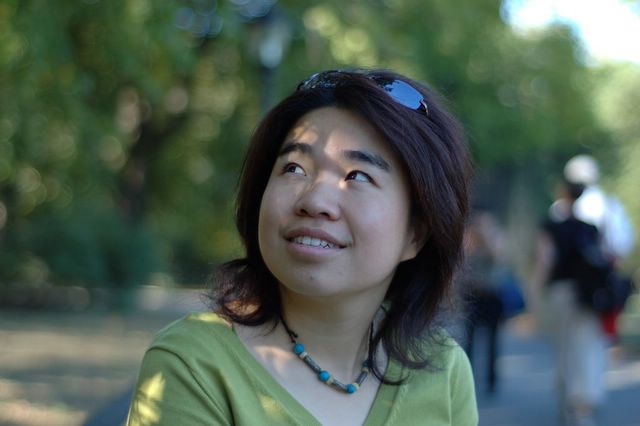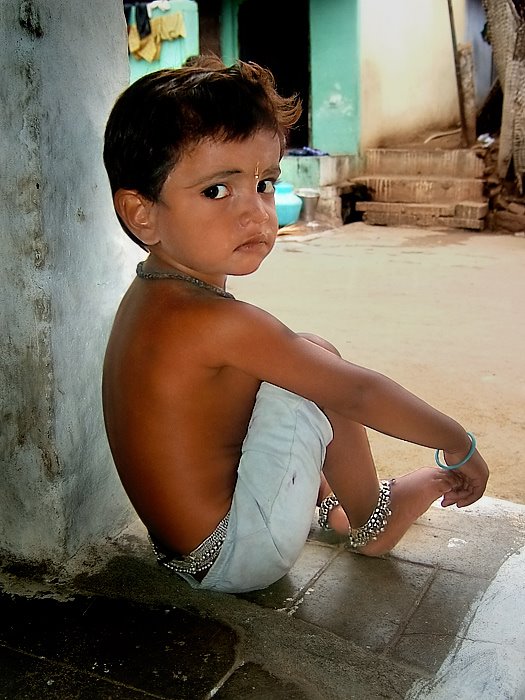
I saw Umberto Giordano's opera Andrea Chenier yesterday at Met. According to Wikipedia,
"André Marie Chénier (October 30, 1762 – July 25, 1794) was a French poet and is associated with the events of the French Revolution of which he was an innocent victim. His sensual, emotive poetry marks him as one of the precursors of the Romantic movement. His career was brought to an abrupt end when he was guillotined for alleged "crimes against the state", just three days before the end of the Reign of Terror." His life was also the subject of Dickens' Tale of Two Cities.
Ben Heppner played the poet Chenier who struggled between love and ideal and Violeta Urmana wonderfully performed the beautiful and tragic heorin Maddalena. Set in the peak of French Revolution, Chenier's fate is a reflection of fate of intellectuals who held their political ideals dear to their heart. There was tention between classes, between lovers, between revoluation ideas, and between the past and the present. All consumated in the tragic ending of the two young lovers.
Two of opera’s most famous arias, “La mamma morta” and “Un dì, all’azzurro spazio" come in Act II and III, highlighted the emotional and dramatic encounters of Maddalena and Chenier. In their last aria, they claimed they found the truth of "the whole existence" and "in death, we live".
================================================================
青年女囚
(Chenier 作于圣·拉萨尔狱)
“青的麦穗成熟着,受到镰刀的矜惜;青的葡萄整夏天不怕榨床的辚轹,酣饮着朝露之珠;而我呵也和它们一样地貌美年轻,不管当前的时日有什么祸乱灾棱,我还不愿意死去。
“让那铁石心肠去干着眼慷慨赴死,我却哭着,希望着,顺着北风的威势倒下又抬起头来。日子诚然有苦的,但有些确实鲜甜!(以上郑克鲁译)唉!哪有那种蜜呵,吃后不感到腻烦?哪有无风的沧海?
“我的胸中藏着有丰富的奇思妙想。牢狱之墙尽管高,我有希望的翅膀,再高压也是徒然:
正如那菲罗美尔逃出了猎户网罗,更活泼、更快乐地飞,中着,引吭高歌,在那冥冥的霄汉。
“会轮到我去死吗?安闲地我去就寝,安闲地我又醒来;不管睡眠或清醒,我都是自问无亏。我活着,大家眼里都闪出庆幸之光!那许多沉忧之脸看到我在这地方,又几乎有了欢意。
“我这美好的征程离尽头还太遥远!我才出发哩,那标树排在路的两面,我才走过了几棵;这人生的筵席呵,才不过勉强开端,我手里捧的金樽仍然是满到边缘,我才衔到了片刻。
“我还是在春天哩,我定要看到收获;像太阳完成一年,要四时循序而过,我也有我的四时。我正在枝头焕发,构成园圃的精华,我曾见到照耀的还只是朝日之霞,我要过我的一日。
“死神呵!不要匆忙,离开,且离开这里;有些心灵被羞愧、惊慌或失望吞噬,快去为它们解除。对于我吗,巴莱丝还留有良辰美景,爱神还留有蜜吻,缪斯还留有和声:我还不愿意死去。”
就是这样,我虽然惨凄凄身在囹圄我的琴却苏醒了,听一个狱中少女作这番怨诉祈求;我摆脱着我奄奄待尽的沉重心情,把她那天真小口自然流露的哀音依韵律谱成诗句。
这几章诗是我的牢狱的和谐见证,谁有那闲情逸致,读这诗定会追问那个妙人儿是谁:她的面容和词语都那么风致嫣然,凡是接近她的人都将会和她一般,怕自己临到末日。
========================================================
 Can not sleep. So I finished this film: Dust (2001). According to wikipedia, Dust (Macedonian: Прашина; Transliteration: Prašina) is a 2001 Macedonian film starring Joseph Fiennes, David Wenham, Adrian Lester, Anne Brochet, Nikolina Kujaca, Vera Farmiga and Rosemary Murphy. It was directed and written by Milčo Mančevski. The music was created by Kiril Dzajkovski.
Can not sleep. So I finished this film: Dust (2001). According to wikipedia, Dust (Macedonian: Прашина; Transliteration: Prašina) is a 2001 Macedonian film starring Joseph Fiennes, David Wenham, Adrian Lester, Anne Brochet, Nikolina Kujaca, Vera Farmiga and Rosemary Murphy. It was directed and written by Milčo Mančevski. The music was created by Kiril Dzajkovski.Shifting periodically between two parallel stories, Dust opens in present-day New York City with a young criminal being confronted at gunpoint by an ailing old woman whose apartment he is attempting to burglarize. While he awaits an opportunity to escape, she launches into a tale about two outlaw brothers, at the turn of the 20th century, who travel to Ottoman controlled Macedonia. The two brothers have transient ill will between them, and they become estranged when confronted with a beautiful woman. In the New York storyline, the young man (named Edge) hunts for the old woman's gold to pay back a debt, and gradually grows closer to the woman. In the Macedonian story, the brothers end up fighting for opposite sides of a revolution, with the religious Elijah taking up sides with the Ottoman sultan and gunslinger Luke joining "the Teacher", a Macedonian rebel.
In the end of the movie, Luke died when he tried to save the woman and her baby and Elijah took the baby back to U.S. The old woman also died in emergency room, Edge took the ashes of the old woman (in fact the baby in the other part of the story) back to her homeland. In the last shot of the film, Elijah held the baby and looked over the sky. There was the plane which took Edge and the ashes of the baby. Time and space meet each other perfectly and the conflict of life is resolved in a circle of life.
Beautiful and sad movie.


没有评论:
发表评论